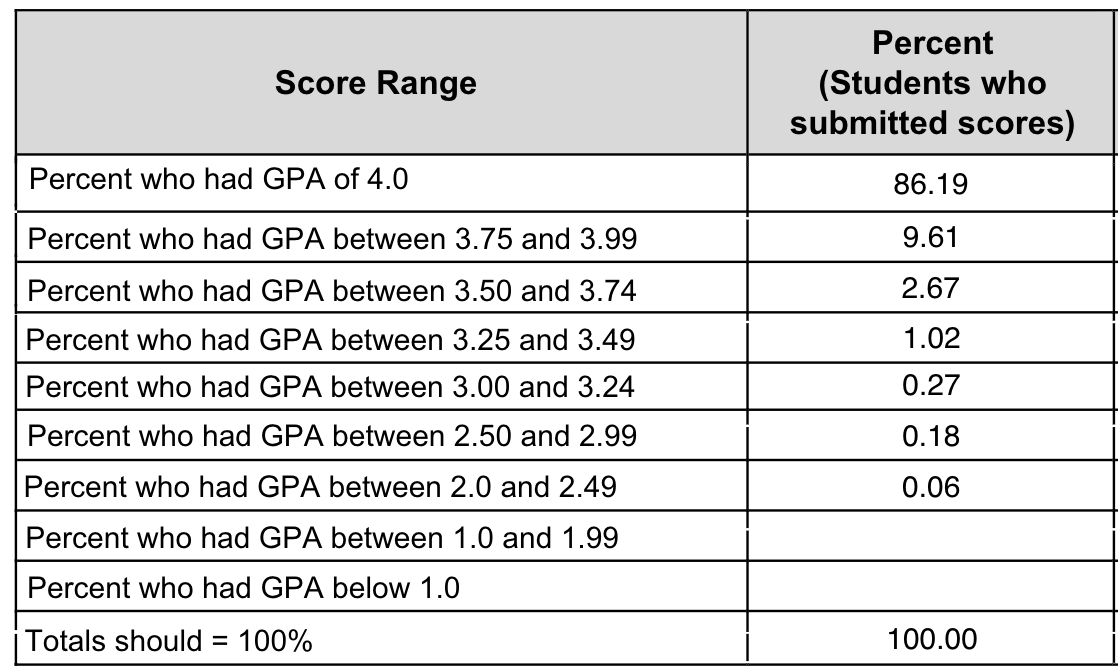College Rankings Are Ruining Your Child's Future

Every parent I know starts their college search the same way.
They hop on Google and search for "top-ranked colleges in engineering" or "best business schools" to build a list of "reach" schools based purely on prestige. If some website ranked it highly, it must be good enough for my kid, right?
But here's what actually happens.
Your son or daughter applies to 15 to 20 "top-ranked" schools they found online. They get rejected by almost all of them. They end up at their "safety" school feeling deflated and disappointed before they even start freshman year.
The ranking obsession creates this weird mismatch. You're picking schools based on what'll impress your friends at dinner parties. Not what actually helps your kid thrive.
The so-called top-ranked college list you found online was created by someone else, for someone else. But what matters is the list your child creates based on what's actually good for them. Not you. Not anyone else.
Most parents can't see past this, and they end up pushing their dreams onto their kids.
Here's the thing: your teen isn't a mini-version of you.
They have their aspirations, interests, and needs, which might not align with what you picture as success. When this happens, parents and students resort to what I call the "shotgun approach."
Kids, with their parents encouraging them, apply to every school at the top of various website rankings, dropping thousands on application fees. What parents often don't realize is how exhausting it is for their child to write dozens of essays. Their patience wears thin, their interest drops, and their essay quality usually tanks with each one.
This is why the college application process can be so stressful.
The logic seems solid at first – more applications mean better odds, right?
Wrong.
The strategy almost always backfires.
Your child will almost certainly burn out from application overload.
Think about it. How can your kid write essay after essay about "why they want to be a Boilermaker" or "what does it mean to you to get a degree from UPenn?" They can't write decent essays for schools that they haven't really researched. And admissions officers? They can spot a generic application essay from a mile away. Plus, you end up with acceptances to schools that were never good fits anyway.
So what's the real solution?
Forget the outdated system of labeling schools as reach, target, and safety (why would you support spending $200K on a so-called safety school anyway?). Instead, try what I call the Academic Match + Emotional Fit Method.
Find Your Academic Match
Start by reviewing your child's current GPA and test scores. Then, find schools where these numbers place them in the top 25% of admitted students, not just barely making the cut but actually positioned to succeed.
How do you get this information?
It's easy. Simply search for "Common Data Set" followed by the college you are looking for to view last year's freshman class profile. The Common Data Set is often 30 pages or more, but you will want to focus on Sections C8-C12 for this information.
You want schools where your child's GPA puts them at or near the 75th percentile and their test scores are at least 10 percentile points above or below that same mark. Find 25 schools where your child's stats fall within this comfortable range. This makes sure they'll be appropriately placed going in and can compete for all four years. Cut any colleges that fall outside these parameters. Schools outside this range would be an Academic Mismatch.
Here are the ACT & SAT percentiles for Purdue.

Here's the GPA Range for Clemson University.

From the list of colleges that are a good Academic Match, start looking for the schools that are a good Emotional Fit.
Want to learn more about how to search for colleges?
Sign up for our Free 5-Day Email College Planning Crash Course.
Find Your Emotional Fit
Finding your Emotional Fit is exactly what it sounds like – an emotion-based approach to searching for colleges.
Stats only tell you about the incoming freshman class's academic ability. To determine if the school Fits your child's needs beyond the numbers, you need to understand what the school is known for and how it connects emotionally.
Remember: the Match concept is for the mind (logic-driven), while the Fit concept is for the heart (emotion-driven).
Pay attention to these areas to see what their gut tells them about each school:
Activities
Your child will have a lot of free time in college because the schedule and pace are significantly different from high school. What do they actually want to do with that time? Look for schools that offer clubs, intramurals, or opportunities that match their interests, not just academic ones, but also their unique hobbies and passions that make them who they are.
Alumni
One way to tell if a school has really made a difference in someone's life? Notice if they proudly support the school's brand afterward. Check LinkedIn to see where recent grads are working. Are they in jobs your kid would want? Do alums stay engaged with the school years later, or do they just disappear after graduation?
Campus and Culture
Don't just think about what appeals to your kid right now. If they choose a small school with fewer than 2,000 students, will they outgrow it in four years? Or will the big city eventually call to them, making them wish for a slower pace? Visit if you can, but also check out student-made content on social media to get a real feel for daily life there.
Career Options
What's the 20-year outlook for your child's potential field of study? Look for schools with fresh, innovative degree programs. But also look for schools that won't box them in if they change direction—which most students do.
Location & Size
College can teach your kid so many different things if they let it. They'll probably need to move for a job at some point in their future. Learning how to adapt now is far easier than leaving one's hometown in their 40s.
Student Support
Your son or daughter will likely need help from the administration, their department, or a professor at some point. But how do you know how much help they'll actually get?
Test it!
As a prospective student, your child deserves a response. Contact the admissions office and ask a question. What kind of answer do you get back, if any?
Call financial aid, their potential degree program, or even a professor they might have heard speak at an information session. How long did it take to get a response? Minutes, hours, days? Maybe never? If your request got ignored or you never heard back, consider this a preview of how the school might treat your kid once they're enrolled.
Varied and Interesting Majors
Look for colleges that take creative approaches to education and aren't afraid to combine majors (like creative writing and video game design or mechatronics and engineering). Find a college that's willing to be innovative and help your kid become future-ready.
Worth noting: According to the National Center for Education Statistics, about 80% of students change their major at least once. So, make sure the colleges you're considering have multiple strong options in case your kid changes their mind.
Picking the Perfect College
Picking the perfect college is less about the bumper sticker you put on your car and more about what your child needs to achieve a Dramatically Different Outcome (which is the main reason anyone goes to college).
Here's a simple test: If your kid graduates from this school with a specific major, will they be measurably better off than they are today?
Will they have skills, connections, and opportunities they couldn't get anywhere else?
If the college and major combination your child chooses won't deliver that kind of outcome, it's the wrong school to attend. The good news? When you focus on Academic Match & Emotional Fit instead of just prestige, you're way more likely to find schools that actually transform your child's life.
And isn't that what you're really paying for?
Need help searching for colleges and writing essays?
Take our course How to Pick the Perfect College
Stay connected with news and updates!
Join our mailing list to receive the latest news and updates from our team.
Don't worry, your information will not be shared.
We hate SPAM. We will never sell your information, for any reason.

